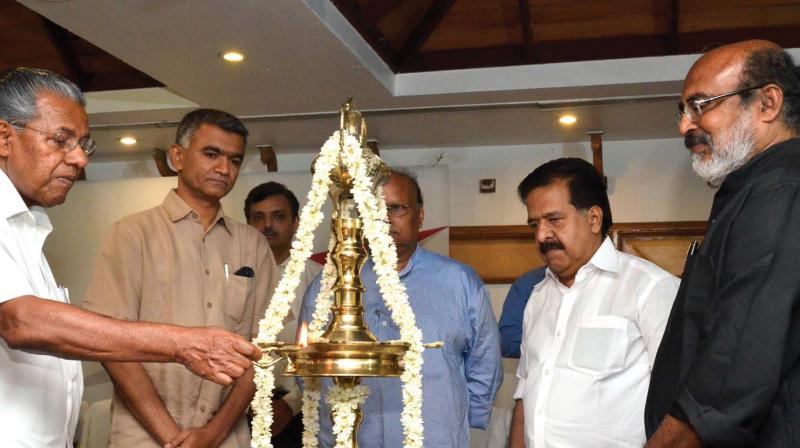South India FMs' conclave: States agree to disagree too
While states came together to oppose ToR, there were no consensus regarding direct debit system.

THIRUVANANTHAPURAM: The ministers at the first Conclave of Finance Ministers of Southern States agreed to vehemently disagree with the Centre, but only in a handful of issues. As for a number of other terms, for instance the need to universalise direct benefit transfer or even the importance of a revenue deficit grant, a consensus remained elusive. There was resounding consensus to object to the adoption of 2011 census population data as the basis for the 15th Finance Commission's recommendations or the introduction of performance-based incentives for states. All participants condemned the use of 2011 census as discriminatory towards high-performing states.
All had criticised the incentive system as "arbitrary". They also said in chorus that the powers of the 15th FC were dangerously curtailed by a Centre too keen to encroach on the fiscal space of states. But equally sharp were the differences. The necessity of direct benefit transfer, which the Centre was insisting on, was one. Puducherry Chief Minister V Narayanaswamy ridiculed the DBT system. "It is a process where a granddaughter takes her grandmother to the bank and end up pocketing the money meant for the grandmother. We want to give free rice to the homes of the poor," Mr Narayanaswamy said. Karnataka agriculture minister Krishna Byre Gowda said that his government was all for DBT. Kerala did not take a definite stand on the issue, though the CPM is ideologically opposed to DBT.
Mr Gowda was all for promoting digital economy but the Kerala team was uncomfortable with the idea. Mr Gowda was forthright when he said that perhaps there would not be consensus on all aspects. "Each state has its own grievances, which may be agreed to by all other states," he said. He also emphasised the importance of a minimum programme to achieve a larger unity. "The idea is also to engage with other states. And in order to bring more states into this, we would have to limit ourselves to those terms that will affect majority of states," he said.
Again, Karnataka, which is a revenue surplus state, was not enthusiastic about revenue deficit grants, which Kerala and Andhra Pradesh are too eager for. Andhra Pradesh and Puducherry have issues that were originally not part of the framework of the opposition that was sought to be forged. Andhra Pradesh, a large state, wants 'special category status' that is normally accorded to under-performing and north-eastern states. "The Centre has changed the sharing pattern from 90:10 (90 percent of the cost of a centrally sponsored scheme was borne by the centre) to 60: 40. This has put a 30 percent additional burden on the states," Andhra Pradesh finance minister Yanamala Ramakrishnudu said.
"This anomaly was identified during 14th FC and since then we have been fighting with centre for special category status," he added. In the case of Puducherry, it is not even part of the 15th FC ToR. "Like Delhi, we are not treated either like a state or a union territory. Neither man nor woman. We are made to feel like a transgender," is how Mr Narayanaswamy put it. "I am here to fight for a space in the 15th FC ToR," he said.

